Diabetes Team Initiative of the Year – Children, Young People and Emerging Adults
Teamwork plays a critical and growing role in high-quality diabetes care. This award recognises the value of outstanding multidisciplinary team achievements and contributions that help better prevent, diagnose or treat diabetes and support self-care management to improve the experience and outcomes for children, young people and emerging adults with diabetes and/or their families/carers.
Winner: Improving Contact, Improving Care
Poole Young People’s Diabetes Service
Improving Contact, Improving Care in Poole has markedly improved diabetes control in patients aged 15–23 years, particularly in those aged 20 or older. The project has a philosophy of outreach, is flexible and advocates frequent contact with young people. Funding from the paediatric Best Practice Tariff for patients aged 15–19 was used to redesign the Pool Young People’s Diabetes Service and extend the core principles of the Tariff to people aged 20–23 years with diabetes in east Dorset. The judges felt the project answered some tough questions and they welcomed its simplicity and transferability, concluding that the use of the team’s own resources to deliver such dramatic results was ‘thoroughly impressive’.
Type 1 Specialist Service – Children, Young People and Emerging Adults
Winner: DigiBete website for type 1 diabetes
Leeds Children’s Hospital and DigiBete CIC
DigiBete is a regularly updated video web platform and social enterprise created by a patient-led initiative and the Leeds Children and Young People’s Diabetes team. It helps young people and their families self-manage diabetes. The website includes essential information at diagnosis, educational videos and emergency advice for common acute complications, as well as downloadable guidelines and resources for parents and professionals. The judges considered it a great resource, being aspirational about what people with diabetes can do as well as offering high-quality practical advice.
Highly Commended: Improving communication with families using a smartphone app
NHS Ayrshire and Arran
The NHS Ayrshire and Arran team created an app for children, young people and their families attending the diabetes clinic following local schools’ effective use of apps and a service user survey unanimously in favour of an app. The app stores useful information for users, provides links to recommended internet resources, a contact in emergencies and a platform for the local family group. It is used by most local families who attend the diabetes service and positive feedback from users is driving further improvements. This form of communication was lauded by the judges as being much more effective than most local arrangements. The team was congratulated on its technical expertise and on identifying a real need among its service users.
Commended: The TickleFLEX insulin injection aid
TickleTec Ltd
The founder of TickleTec had never been comfortable self-injecting insulin so he developed the TickleFLEX device to make self-administration simpler. The device conceals the needle and the act of penetration. It also applies distraction analgesia, such as scratching an itch, to disguise discomfort associated with injecting.
Commended: GReaT groups – supporting transition to secondary school
University College London Hospitals
This brief family-based intervention developed by the paediatric psychology service and diabetes team explores diabetes concerns during the period in which children with type 1 diabetes transition from primary to secondary school, providing opportunities to share ideas and resources. The Getting Ready for Transition (GReaT) group aims to increase confidence and reduce the concerns of children and parents at a time children when are adapting to many emotional, social, organisational and cognitive changes.
Finalist: Personalised care for disengaged young adults aged 16–30 with type 1 diabetes
East and North Herts NHS Trust
This 2-year pilot project developed by the East and North Herts Institute of Diabetes and Endocrinology used text, Skype, email contact, flexible appointments and newer methods of treatment and monitoring to improve the health outcomes of disengaged young adults with type 1 diabetes. A survey found that the majority of respondents rated the platform helpful and the content ‘high quality’. The project is ongoing and the judges said they look forward to seeing the benefits in this hard-to-reach group.
Diabetes Education Programmes – Children, Young People and Emerging Adults
This award recognises teams and individuals working to educate and empower children, young people and emerging adults to self-manage their diabetes and stay as healthy as possible. Programmes may include structured education, other education initiatives, influencing clinical, psychological or social well-being in community or clinical settings. Initiatives can be at any stage from diagnosis, for different age groups and from children’s services to transitioning to adult services.
Winner: Psychoeducation workshop for parents of children with type 1 diabetes
University Hospital of Wales
This pilot psychoeducation workshop was designed by the paediatric diabetes team to raise parents’ awareness of disordered eating behaviours, self-esteem and body image issues in young people. The workshop was designed for the parents of children and young people with type 1 diabetes and gives them tools to support their children/adolescents with psychological and lifestyle challenges. The judges said: ‘There is a huge need for this kind of help across the country, and this project provides a model for further development of services nationally.’
Commended: Carbohydrate Counting Educational Assessment Tool (CC-EAT)
Royal United Hospitals Bath NHS Foundation Trust
As there were no assessment tools for carbohydrate counting for primary school children with type 1 diabetes, the Royal United Hospitals Bath NHS Foundation Trust developed an age-appropriate tool. CC-EAT was found to be effective when piloted and reviewed by leading diabetes dietitians and trialled by dietitians.
Best Practice Dissemination and Sustainability
This award recognises people and teams who have been recognised within Quality in Care Diabetes. They have successfully disseminated and sustained their best practice for a minimum period of 2 years for the ultimate benefit of people with diabetes and/or their families and carers.
Commended: Improving outcomes for families through the ‘Type 1 Kidz’ project
Investing in Children
Investing in Children’s established Type 1 Kidz sessions, which have resulted in a number of improved outcomes to date, will be rolled out across the County Durham and Darlington region over the next 2 years thanks to additional funding. The monthly Type 1 Kidz sessions provide a forum for children and young people with type 1 diabetes to meet, take part in activities, learn from each other and build confidence in managing their condition.
Outstanding Educator of the Year
Supported by the Primary Care Diabetes Society (PCDS), this award is presented to an individual based in the UK or Ireland who delivers excellence in education, in a specialist or community setting whether through: developing innovative teaching tools or courses; providing mentorship for other educators; or delivering and promoting externally-developed training. He or she has a clear patient focus and champions education in his or her area.
Winner: Emma Green
Emma was awarded the accolade Outstanding Educator of the Year for initiating diabetes education training for all teachers throughout Leicestershire. She holds training sessions once a month for 40 teachers that cover everything they need to know about managing a child with diabetes at school including:
- What diabetes is
- Carbohydrate counting for school lunches
- Administering injections and managing insulin pumps
- Management of high and low blood glucose levels
- Supporting children during exercise
- Helping create a management plan for school trips
- Signposting when to call healthcare professional or emergency service.
As a result of Emma’s sessions, children in Leicestershire receive high quality care in schools, parents are less anxious about their child’s care at school, relations between schools, families and the diabetes team have improved, and other healthcare professionals have more time available to concentrate on other essential areas of care, such as newly-diagnosed patients.
The People’s Award
The People’s Award is presented to someone who is based in the UK or Ireland and is not a healthcare professional, such as a carer, volunteer, a person with diabetes, diabetes blogger and/or writer, family member.
Winner: Beth Baldwin
This year’s People’s Award went to Beth Baldwin, who lost her son Peter, aged 13, to undiagnosed diabetes in 2015. Since this time, Beth has campaigned tirelessly to raise awareness of the early symptoms of diabetes, launching the Know Type 1 campaign – which has been seen by over 1 million people – in June 2017. She petitioned the Welsh Assembly, who made 10 wide-ranging recommendations that will all increase the early identification of this condition and as a result save lives. Beth has been contacted by a number of families from across the world whose children have been safely diagnosed with type 1 diabetes thanks to her work. Her commitment to early diagnosis has become Peter’s legacy.
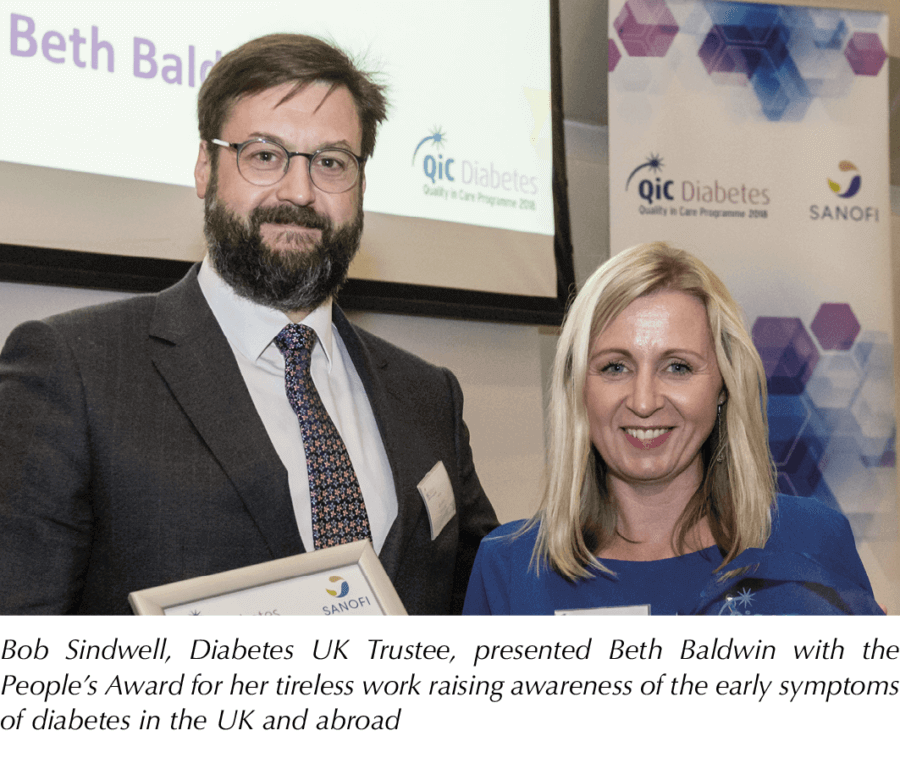
For a full list of this year’s winning, highly commended and finalist entries, click here.
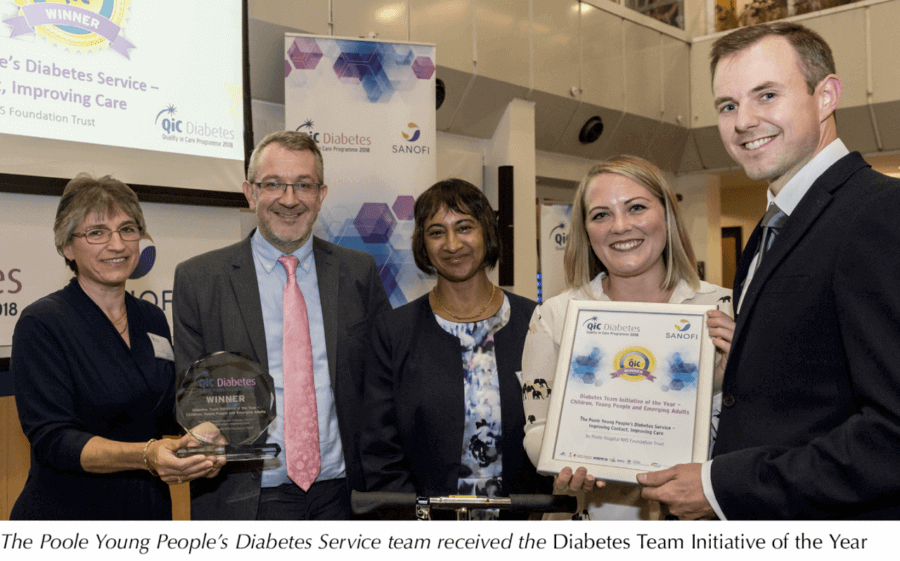
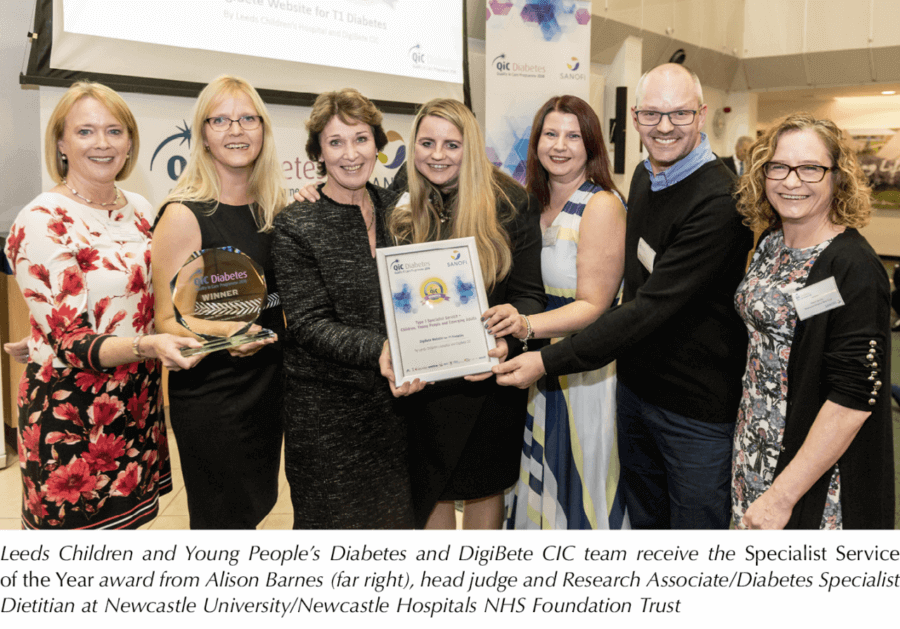

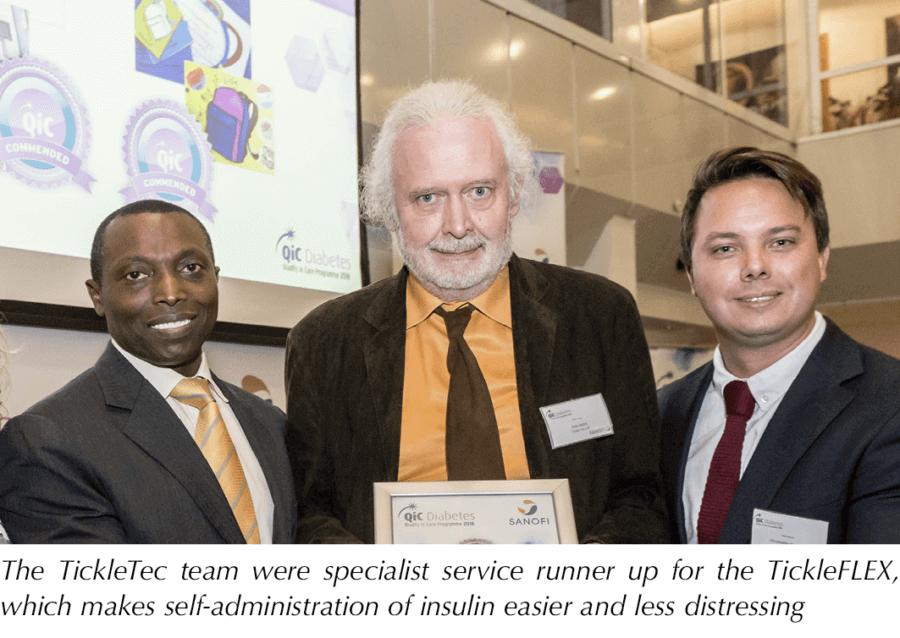

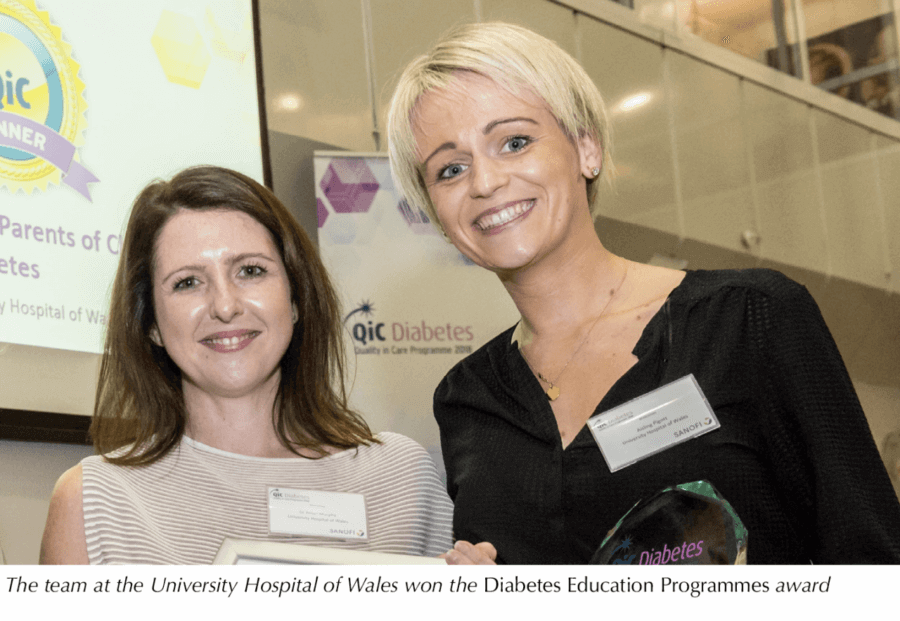
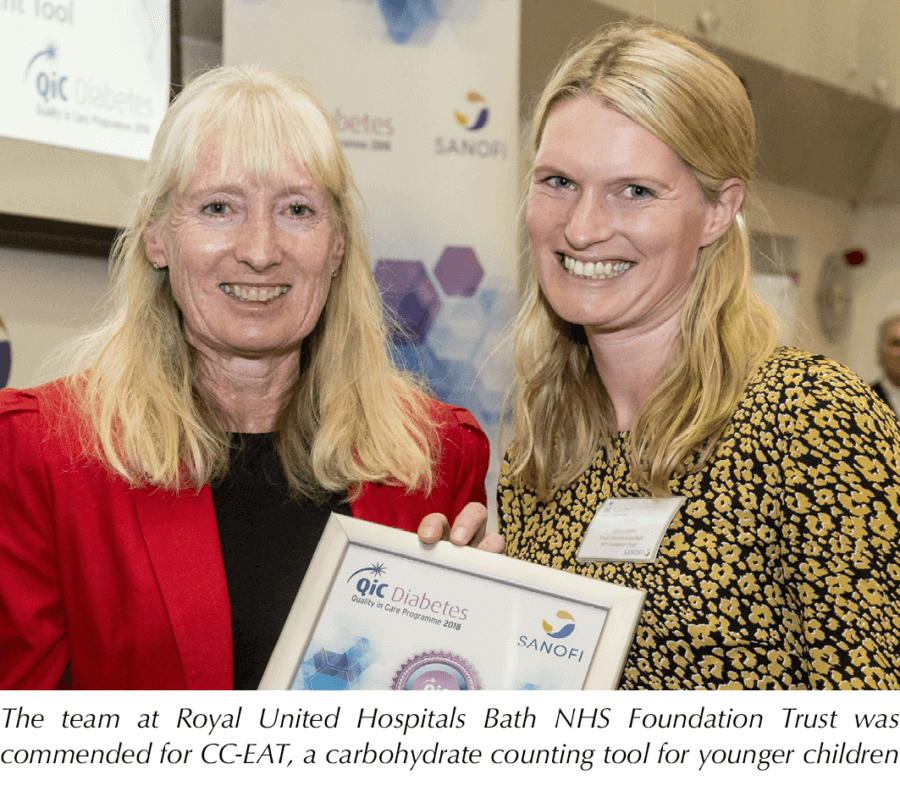
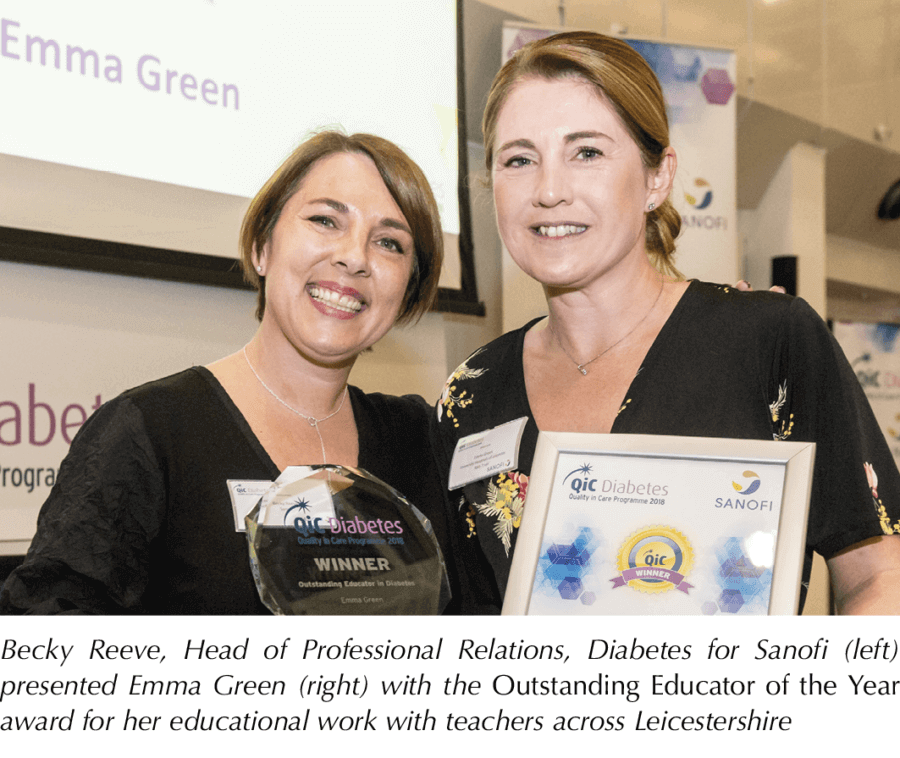

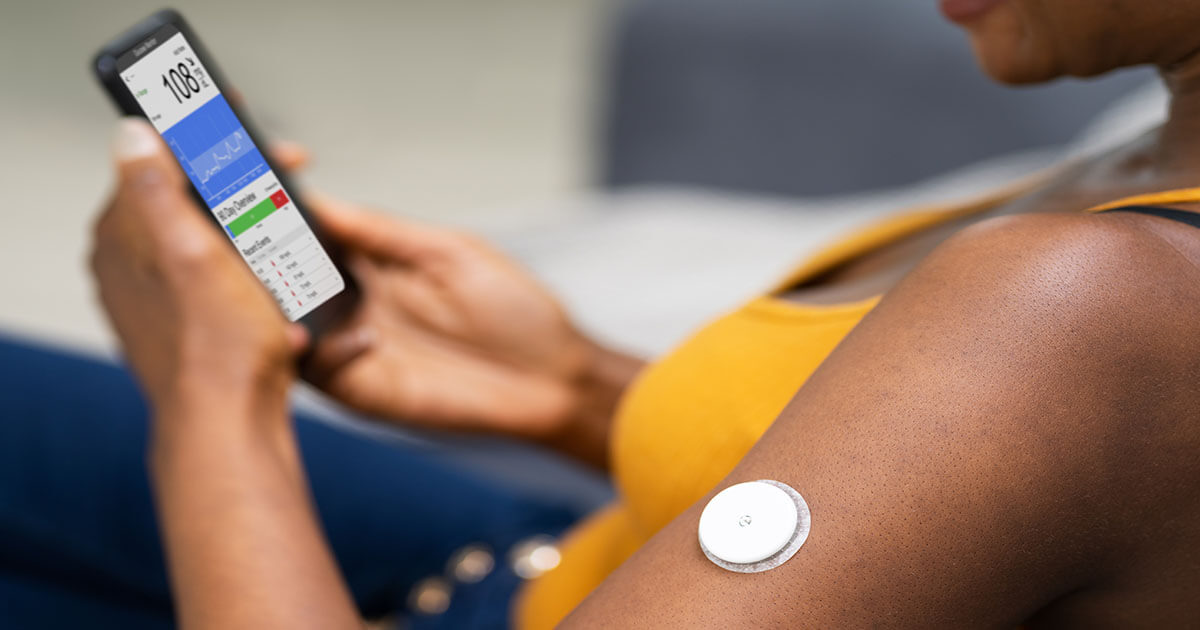



NHSEI National Clinical Lead for Diabetes in Children and Young People, Fulya Mehta, outlines the areas of focus for improving paediatric diabetes care.
16 Nov 2022